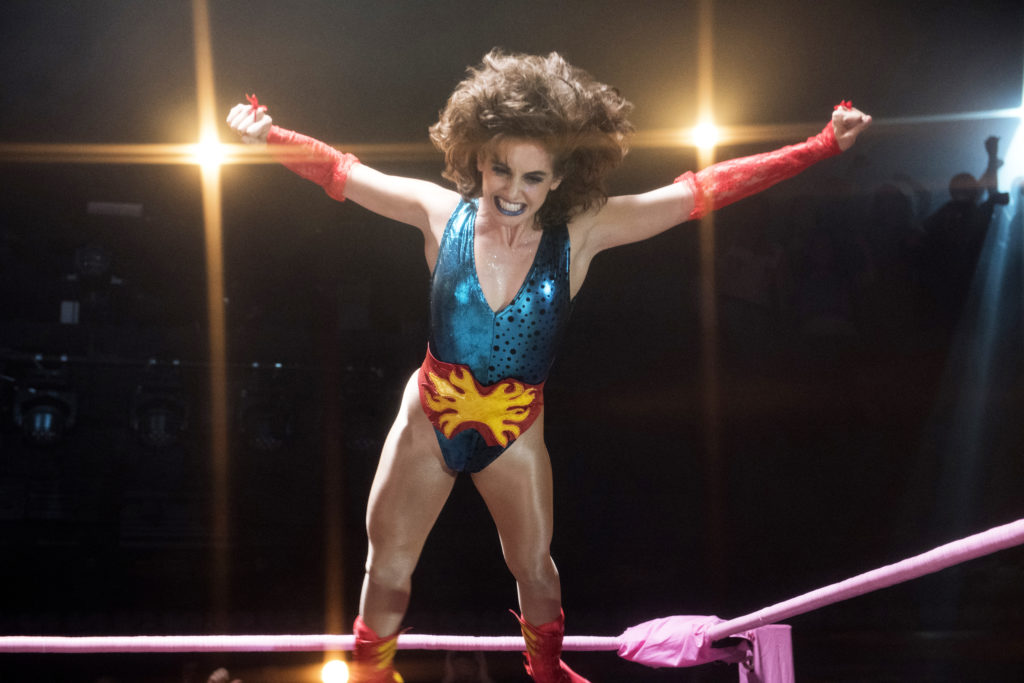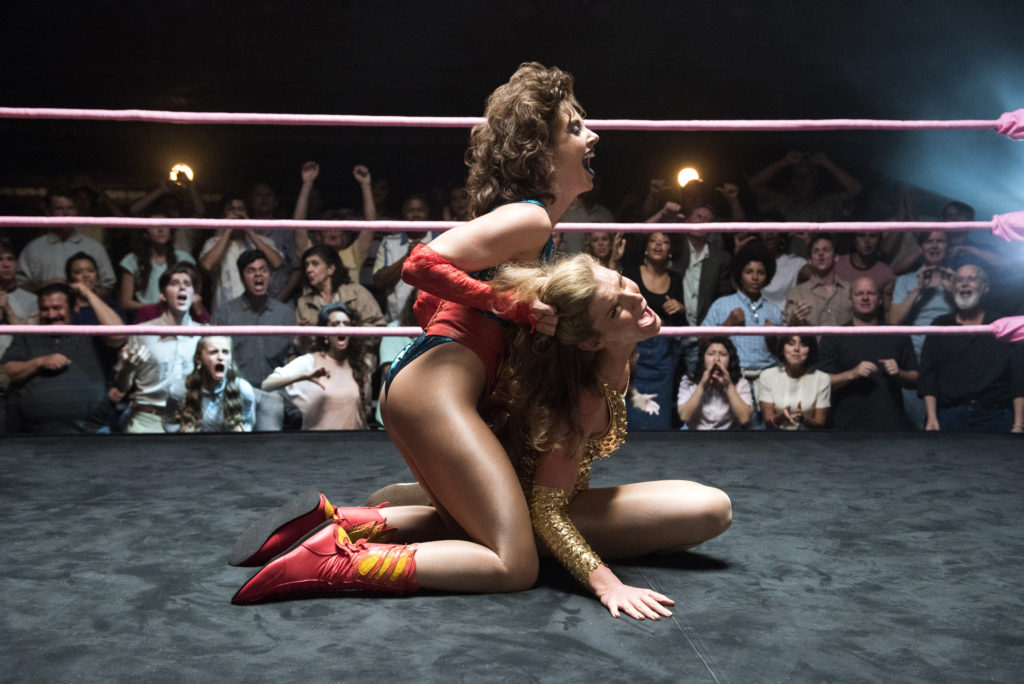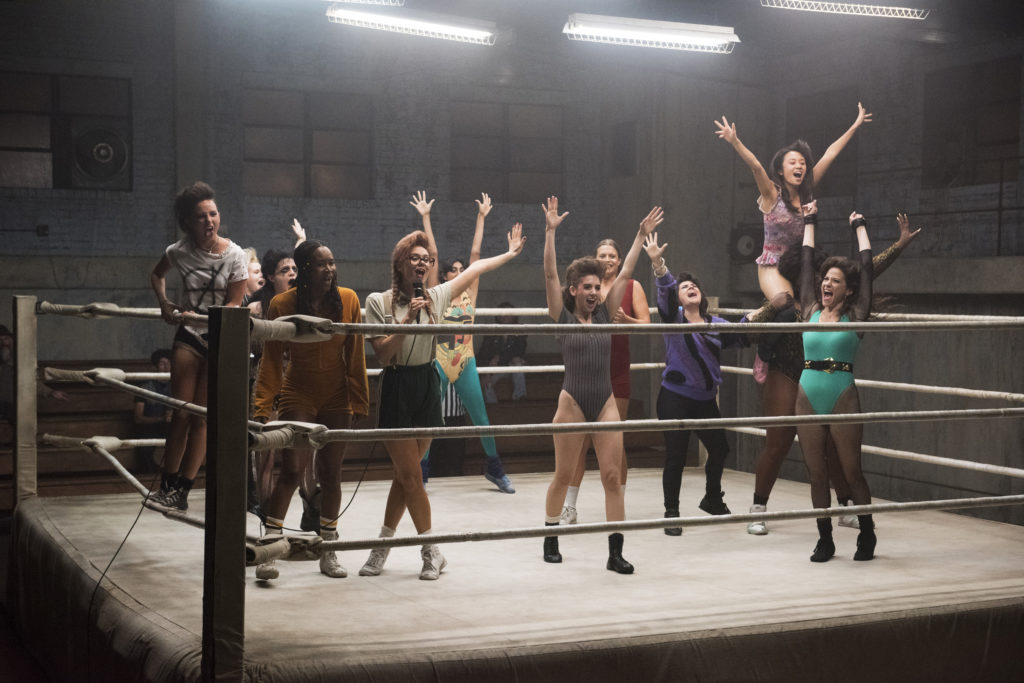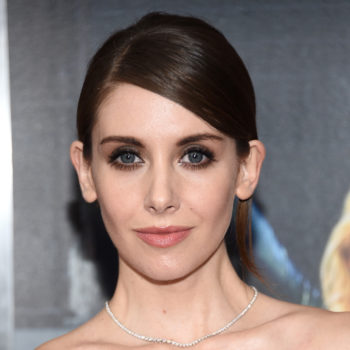Actor Alison Brie played Pete Campbell’s long-suffering wife Trudy on the hit drama “Mad Men,” and straight-laced Annie Edison on the cult sitcom “Community.” But this month, she takes on a very different starring role in the Netflix series “GLOW.”
Brie plays Ruth Wilder, a struggling actress in the 1980s who joins an all women’s pro-wrestling league. Marc Maron co-stars as a sleazy, but somewhat lovable, director
Spoiler alert: Ruth ends up becoming a Russian villain in the ring. Brendan chatted with Alison about the show, and the actress explained why this was a dream role, how it was different from her “Mad Men” experience, and more.
Interview highlights:
On why “GLOW” was a dream job
Alison Brie: Well, it just checked every box if I was thinking about the kind of work I wanted to do, whether it was in TV or film. It’s a comedy. It’s a period piece. It has elements of drama. The characters have a lot of depth. The writing has a lot of nuance, and then at the same time we get to wrestle. It’s like, it’s like the action movie I always wanted to do. While we were shooting it, I kept being like, “This is my action movie! This is my superhero moment.”

On her audition experience for the show
Brendan Francis Newnam: Well, did you have to body slam the casting director? How did it work?
Alison Brie: No, I did not, but I did wear spandexy kind of workout clothes, and I wore no makeup because I thought… The impression I was getting was they thought I was not edgy enough, or I was like a little too polished, I think, based on seeing me as Annie and Trudy.
So, I really wore no makeup and had my hair back in a bun and just was in tight workout clothes, and I had to do like a brief little sort of wrestling character improv moment that we got to do.
Brendan Francis Newnam: Well, congratulations for getting the part.
Alison Brie: Thank you. I cried.
On learning to flex different acting muscles for “GLOW”
Brendan Francis Newnam: So one of the interesting things about the show is that there are two types of acting going on. There’s your character Ruth who is this well-written complicated protagonist in the modern kind of cable tradition. And then there is her wrestling person, which is just this over-the-top villain battling a hero in this kind of very simplistic old world style. As an actor, do you prefer one of those modes over the other?
Alison Brie: I mean you really hit the nail on the head in terms of what was so fun about working on this show. It’s like the actors dream of getting to exercise both muscles. That teeny, tiny muscle of hitting all of that nuance and something to me that is very reminiscent of working on “Mad Men,” where it’s all about what’s not being said and reading between the lines.
Then you get to get in the ring, and it really reminds me of theater school kind of. It’s like the most extreme stage you could be on, and you’re fueled by people booing at you or cheering for you. In my case, booing, usually booing.

I think the other dynamic to that which is cool and interesting and was so fun to play with was when we’re in the ring. On the one hand, it was this huge black and white thing, good versus evil. Then, there’s a layer underneath that that’s like, “Well now, we’ve worked on these moves. Our characters are just learning how to be these wrestling characters, at what stage of that are they in.”
And then, there is a deeper level of, “Oh my gosh these characters have a real complicated relationship, but a real human connection, and in the ring is the only place where they can actually look each other in the eye and touch each other and be close.”
On the difference between working on “GLOW” and “Mad Men”
Alison Brie: Well, to start out, “Mad Men” was primarily a drama, and this is primarily a comedy. So, I think that just in tone, the tone on set couldn’t have been more different.
You know, I would pop into “Mad Men,” and I would do a day when I worked on an episode, so I’m not the one to tell you exactly what it was like on set all day every day. But for me, when I was there, it was very focused. Everyone was jovial and sweet, but you were really focused on the work.
On “GLOW,” it was just so loud. All of the women, we were very rambunctious. We would often just get in the ring and start stretching or start practicing moves. It was just like the physical aspect of the show was present ALL THE TIME.
Also, this is a show that’s run by women. Liz Flahive and Carly Mensch created the show. They EP [executive produce] the show. They write. We had an all-female writers room save one, one guy. More than half of the episodes were directed by women.
On how having women in charge changed the tone on set
Alison Brie: It was very cool. It was very different, and this is not to single out “Mad Men.” I would say it was very different from any other job I’ve worked on in that respect. Everyone just felt so comfortable and free. It sounds so cliché to use the word “safe” as like a safe environment, but it’s so seldom.

I don’t know that it even really occurred to me how much women and actresses are so constantly under the male gaze, I mean especially in this profession. Even when it’s not super obviously in your face, it is ever present, and it was not present here. There was never a moment where we were being sexualized in any way, and it was like women ran the set. I’ve never felt more comfortable on a set or more confident or more like myself. It was just very freeing.
Brendan Francis Newnam: The director, Paul Feig, came by a couple of weeks ago, and he writes primarily female-lead movies these days.
And he talked about how as a male director, he often relies on his female colleagues to help kind of create better performances, and it sounds like “GLOW” cut the middleman out in some sense, and it opened up your performances.
Alison Brie: Absolutely! Because, again, everybody just felt safe and empowered, I think, and emboldened to put themselves out there, and it was important, because we were putting ourselves out there in every way you could imagine, physically and emotionally, and all of that stuff.
[This interview has been edited and condensed.]


